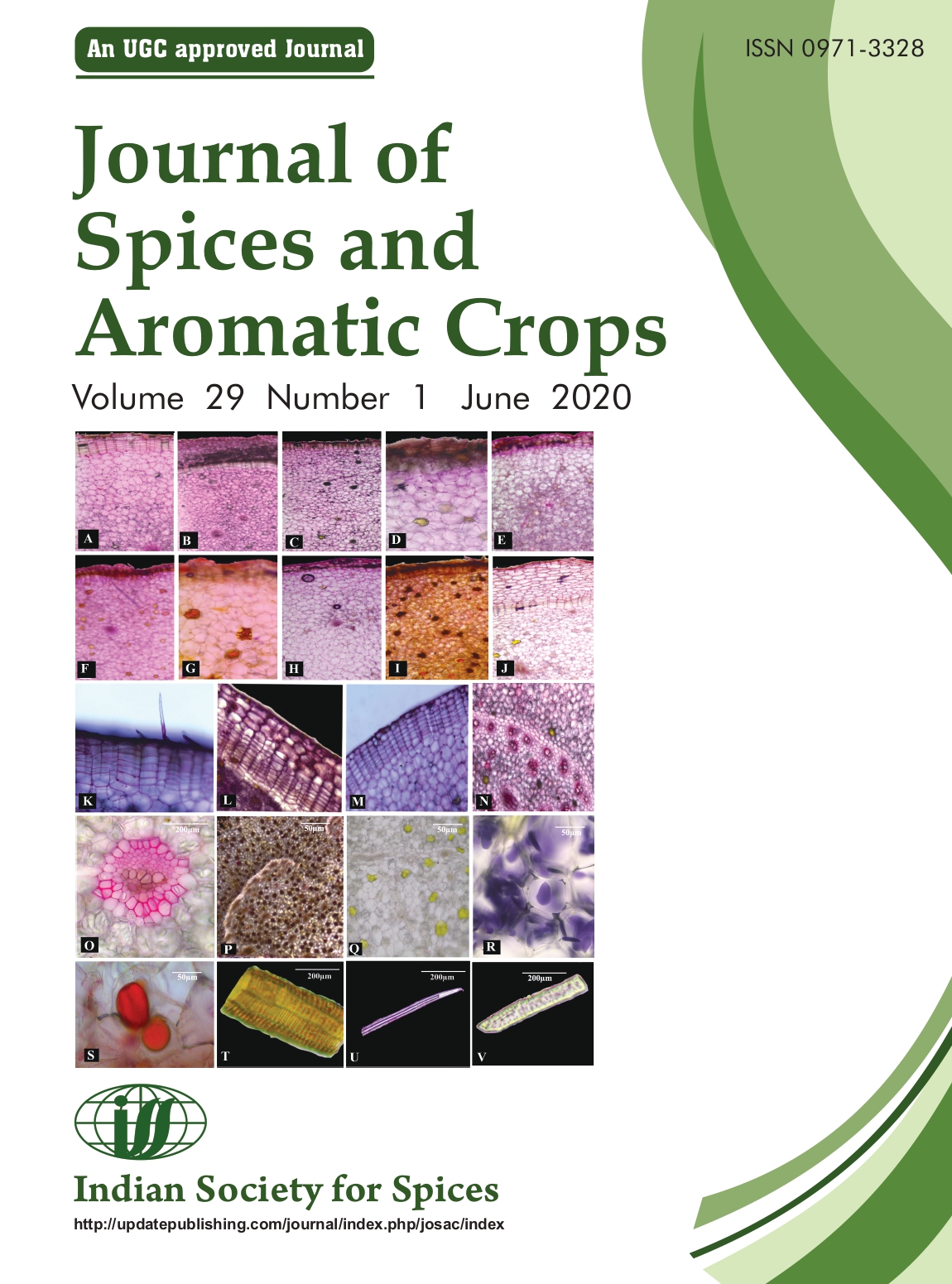Biorational strategies for the management of insect pests of spice crops
DOI:
https://doi.org/10.25081/josac.2020.v29.i1.6330Keywords:
Biorational management, insect pests, spicesAbstract
Pest control strategies based on relatively non-toxic procedures that preserve the health of the ecosystem and minimizes negative effects on beneficial organisms, and utilize microbial pathogens and their products, plant natural products, semiochemicals, biotechnological strategies and reduced-risk pesticides can be termed as ‘biorational strategies’. This review consolidates the information available on the use of biorational strategies for the management of insect pests of spice crops such as Piper nigrum (black pepper), Elettaria cardamomum (cardamom), Zingiber officinale (ginger), Curcuma longa (turmeric), Coriandrum sativum (coriander), Cuminum cyminum (cumin) and Foeniculum vulgare (fennel). The review also identifies the current gaps in knowledge and the opportunities and challenges in using biorational strategies for the production of clean spices, reflecting the global concern over pesticide misuse.






 .
.